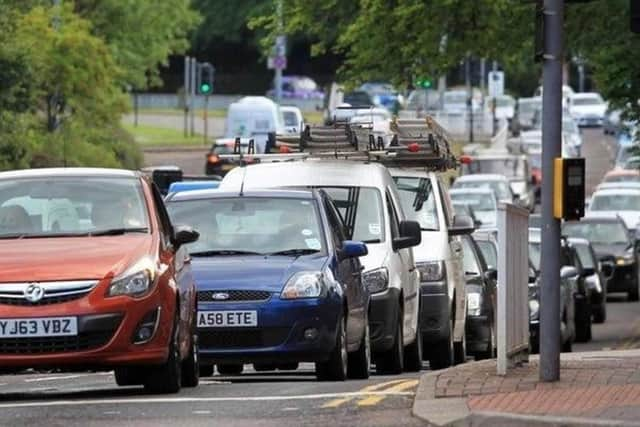Yorkshire council had 'no legal authority' to set up £29m Clean Air Zone
The council announced the zone was “no longer required” in October 2020 because the air quality had significantly improved following “a dramatic shift to cleaner vehicles”.
The scheme, which would have introduced charges for lorries, taxis and buses that failed to meet emissions standards, was originally due to be launched in January 2020.
Advertisement
Hide AdAdvertisement
Hide AdBut after several delays, a council official wrote to the Department for Environment, Food & Rural Affairs (Defra) in October and said the Clean Air Zone (CAZ) should be scrapped, because the amount of nitrogen dioxide (NO2) pollution on key roads was within the Government’s legal limit, following a significant reduction.


In emails, obtained by a Freedom of Information (FOI) request, he wrote: “If we were to continue to implement a CAZ having already achieved compliance and having evidence to show that compliance will be maintained, this exposes the council to legal challenge as the legal duty has now been met.
“Having received advice from counsel, we believe we have no legal authority to proceed with the CAZ.”
Using powers in the Environment Act, the Government ordered Leeds and four other cities to set up clean air zones in 2017, to ensure they reduced air pollution.
Advertisement
Hide AdAdvertisement
Hide AdTwo years later, Leeds City Council was handed £29m of Government funding to set up the zone and provide financial support to businesses which needed to switch to low-emission vehicles.
The emails show the council disputed a review of emissions conducted by the Government and then conducted its own calculations.
The council concluded the city was “predicted to be comfortably below” the legal pollution limit because so many businesses had switched to cleaner vehicles, but the reduction in traffic during lockdown was not factored in because it was “highly unusual”.
The official said around 80 per cent of buses and almost 90 per cent of heavy goods vehicles ran on cleaner Euro VI engines and would not be charged if the CAZ was introduced, while 45 per cent of taxi drivers were using low-emission hybrid vehicles.
Advertisement
Hide AdAdvertisement
Hide Ad“The city’s fleet has improved far faster than anticipated. This has been in part due to the anticipation of a CAZ being implemented and also as a result of the Clean Air Funding which the government has made available,” he added.
Rebecca Pow, an environment minister, wrote back 12 days later and said: “I am content that there is no longer a need for a Clean Air Zone to be implemented.”
She added: “It is very welcome news that the air quality on Leeds roads has improved substantially.
"It appears likely that this success has been driven by a significant upgrade of the vehicle fleet entering the city due to the investments made under the NO2 plan in generating behaviour change. It will be important that this upgrade is maintained.”
Advertisement
Hide AdAdvertisement
Hide AdLast year, Leeds City Council agreed to hand back £1.5m of the funding it was given to launch the CAZ, according to the Local Democracy Reporting Service.
Around £18m of the money was earmarked for taxi and HGV drivers in loans and grants to help them upgrade to greener vehicles.
The council was also allowed to keep a £6m network of around 300 automatic number plate recognition cameras, which would have been used to enforce the Clean Air Zone charges.
